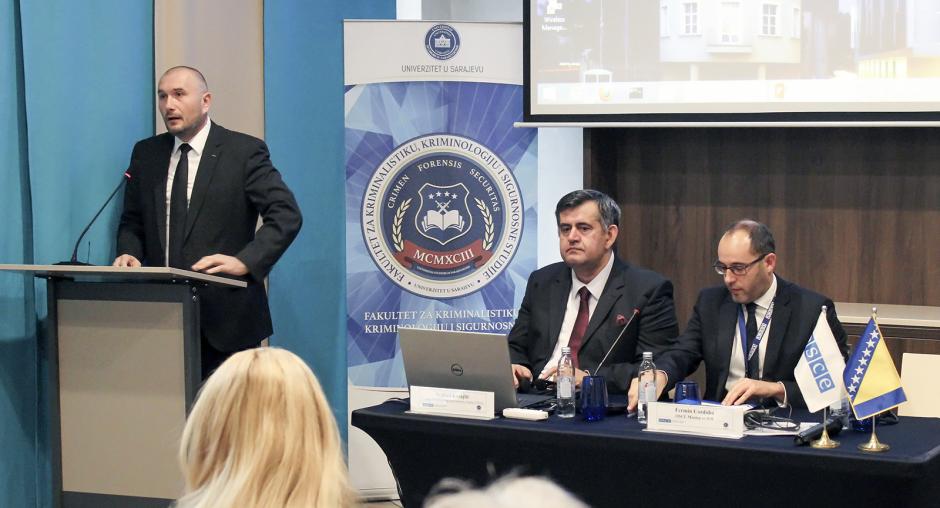Hate crimes in South-East Europe come with common features and patterns, participants conclude at OSCE conference in Sarajevo

SARAJEVO, 8 November 2016 – Eleven authors from Bosnia and Herzegovina (BiH), Serbia and the former Yugoslav Republic of Macedonia presented their research papers on hate crimes in South-East Europe to over 70 regional participants that gathered at a conference which concluded today in Sarajevo.
The conference was organized by the OSCE Mission to BiH, in co-operation with the Faculty of Criminal Justice, Criminology and Security Studies of the University of Sarajevo, and in partnership with the OSCE Presence in Albania, and the OSCE Missions to Montenegro, Serbia and Skopje.
Hate crimes in South-East Europe have many common features and patterns, such as similar legal framework and victimized groups but also issues of underreporting, and downplaying of these incidents. The spillover effect of hate motivated incidents through this region is not uncommon either. As such, they require a regional focus and a sufficient degree of regional synergy.
“The idea behind the discussion today, which combines academic and practical views on how best to understand and interpret this phenomenon and its impact on the society in general, was to bridge the lack of relevant literature on hate crimes in the region,” said Fermin Cordoba, Head of the Human Dimension Department at the OSCE Mission to BiH.
Joanna Perry, Co-Chair of the advisory board to the International Network of Hate Studies, said: “The regional focus of this conference is particularly exciting given that the literature on hate crime tends to be dominated by Anglo-American perspectives. Scholars, policy makers and civil society organizations face specific challenges in creating nationally and regionally relevant concepts and strategies to understand and address hate and hate crime.” Perry stressed that gatherings like this allow one to develop and sharpen our thinking and action to address one of the great challenges of our time.
Marija Lucic-Catic, Professor at the Faculty of Criminal Justice, Criminology and Security Studies of the University of Sarajevo, said that the conference served as an excellent platform for the exchange of scientific and expert experiences. “Thanks to its multidisciplinary approach, the discussion explored efficient mechanisms to tackle this phenomenon which can serve as a basis for further improvement of the existing models for responding to this extremely dangerous social phenomenon.”
The papers presented at the conference will be published in the Journal of the Faculty of Criminology and Security Studies in Sarajevo together with additional four papers selected through the review process. It is hoped that these papers will help practitioners in the region to appropriately tackle hate crimes but also provoke further academic discussion about how best to address this phenomenon.
